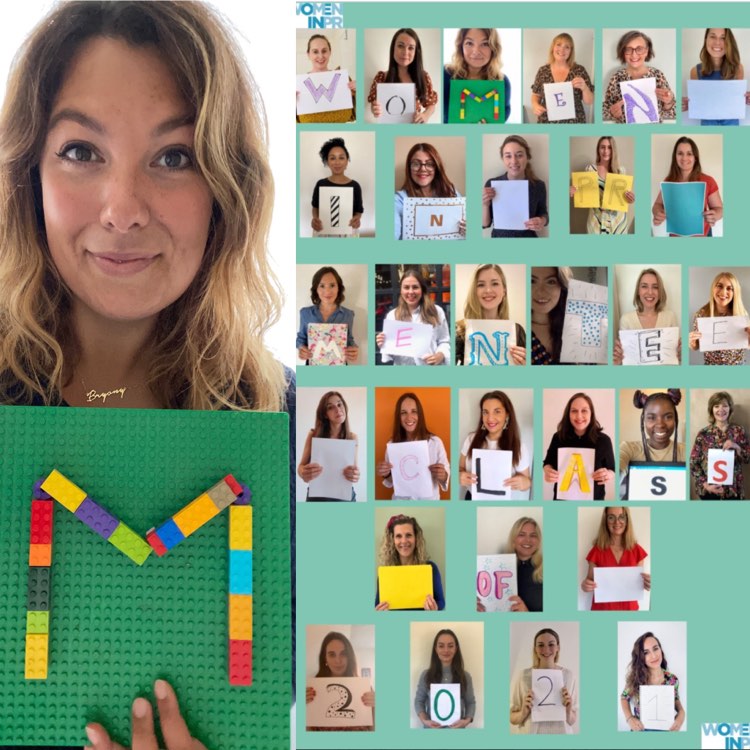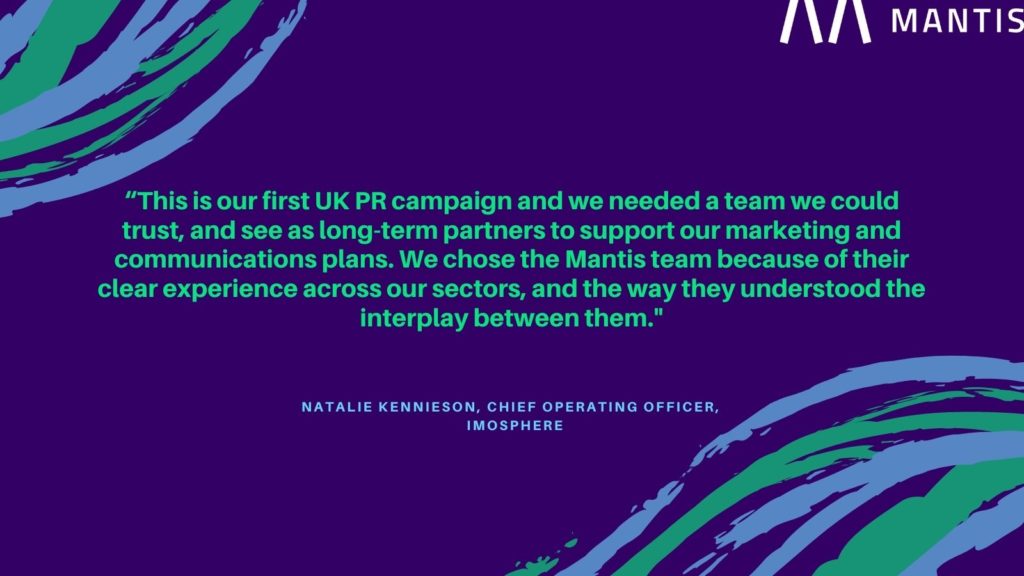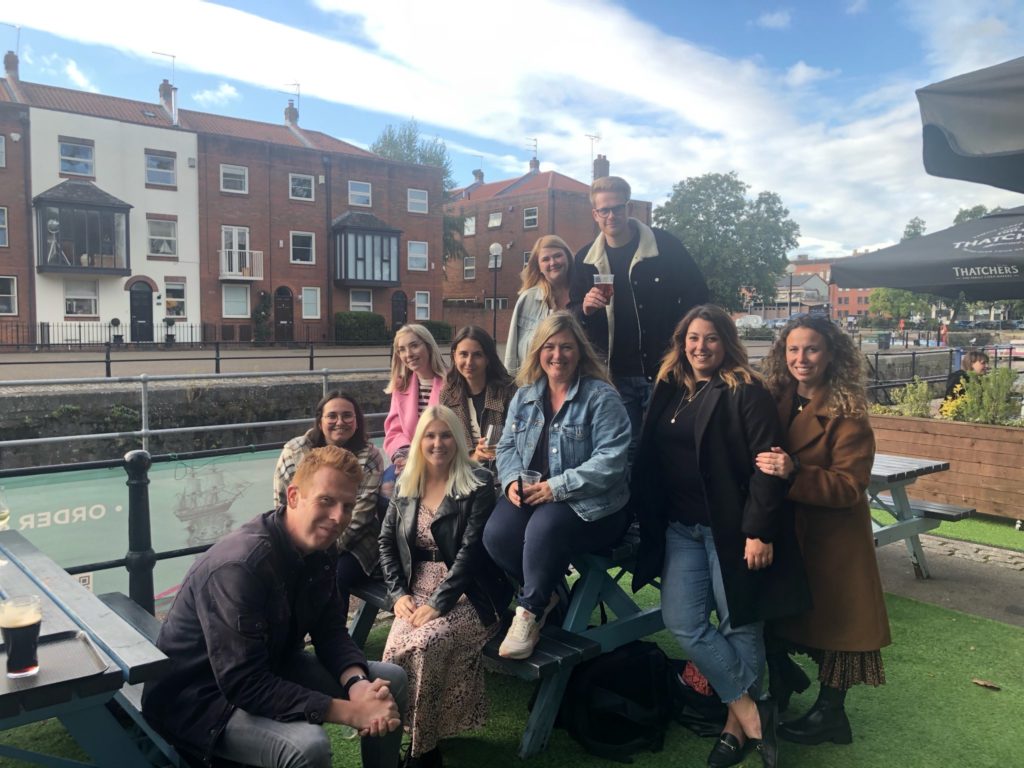Honesty, people-centricity and big beats – the creative communicators’ edit
Written by Eleanor WillockThe Mantis and Ruder Finn teams are full of original talents, and following on from Eleanor and Bryony’s hard questions for each other, we thought we’d continue the series. Here’s what happened when Mantosian and creative writing addict Caitlin Crump met Tasmeen Warr, one of the bright stars of Ruder Finn’s internal comms practice, to discuss what makes them tick about their chosen roles.
Caitlin’s questions for Tas
You’ve previously worked for the NHS. Did it make you see the world differently?
Yes, in many ways. I think just having an understanding of how the NHS works was pretty eye-opening. Before I worked in hospital comms I saw the NHS as one big organisation, but really the NHS feels more like a brand with lots of different organisations under its umbrella working to the same goal. So much work is happening right now to try and join up care – for organisations like hospitals, GPs, local authorities, police, to all talk to each other in a more streamlined way and improve the health of the population. NHS staff face significant challenges on a day-to-day basis, and while the NHS is always a big focus in the media, you don’t really know what it’s like until you are in it. I think it can be easy to forget that NHS staff really are just people, they aren’t perfect, and are trying to do a job like the rest of us. Often there isn’t just a straightforward solution written down somewhere to solve the challenges they face – there is a hell of a lot of problem solving. I guess it helped me put any personal problems or challenges I was facing into perspective, and be grateful for the little things in life.
What’s the one internal comms tactic that every company should be deploying?
This may seem obvious, but people-centred communications is key. Keep your employees at the heart of your internal comms – often organisations can make internal comms one way, too corporate, unrelatable. It doesn’t have to be jazzy, but use employee stories, provide two-way communication channels, and listen to what your employees want. Your employees are such important stakeholders, so they should be treated that way. I think sometimes the focus can often be drawn too much on external comms, and while that is an absolutely critical part of any company communications strategy, if you bring your employees on board with your vision, help them to feel valued and engaged in the organisation, they can become your biggest brand advocates and will promote your brand for you!
Who or what do you turn to when you need inspiration and motivation?
If I’m ever in need of inspiration then my first port of call would be my amazing internal comms colleagues at Ruder Finn. Everyone comes from an array of backgrounds, has worked with so many different organisations and brings a wealth of experience to the table, so it’s always helpful to pick their brains, get some inspiration and brainstorm ideas. I also like to keep up-to-date with the latest internal comms trends and will regularly scour through Google, social media or websites like the Institute of Internal Communications for case studies and examples of what other organisations are doing. If I need a bit of motivation to crack through a piece of work, I put my headphones on and will put on a BBCR1 Essential Mix. Or even if I need to think of ideas, somehow my brain seems to work more creatively when I’m listening to a heavy beat!
Tas’ questions for Caitlin
What’s been the most empowering skill you’ve learned in the past few years at Mantis?
For me, it’s definitely been the skill of communicating effectively with clients, so that the working relationship benefits everyone. To start with, I find that if you have enough knowledge under your belt, you can go into any client meeting armed to the teeth with answers for any question they might have for you, as well as a few ideas of your own. It just helps everything run more smoothly. Another part of the package is being honest, and managing expectations, which is something I’ve worked really hard to develop over the years. It’s a real skill that we all need to practice! I’m naturally quite a quiet person, but I am committed to being totally honest with my clients. It’s also empowering just being able to have some off-topic conversations with each other, unrelated to PR activity, to get to know each other as people too.
What do you love about working in Govtech?
I have a bit of a passion for politics and government policy, and getting engrossed in the tech supplier side of things, to me, has been really fascinating. To be able to talk to people on all sides of the equation and see beyond the emotionally charged headlines you see every day is really enlightening. It has helped me understand the detailed background behind what we see reported in the news, from social care reforms to the recent changes proposed to the planning system, and the part that our clients play in shaping public services is always interesting.
I know you love writing, how do you keep your skills fresh and keep improving?
Writing is the true love of my life. What helps me improve is to keep trying new things, and to take on types of writing that I might not have done before in order to broaden the range of things I can do. It’s not enough to be a fantastic opinion article writer if all your case studies are terrible! Taking on new things, particularly things I have less experience in, is a great way of discovering new skills.
Research is another big part of it. For lots of us working in PR, we don’t start off with a lot of background knowledge on the topics we write about. Doing as much reading up as I can on the topic can really help my words to come more naturally – that way, I can focus more on crafting the piece as a whole, and the structure and purpose of it, rather than grappling with jargon or getting weighed down by complex technical concepts.




